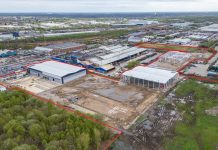Rents in London’s skyscrapers are rising faster than those in any other global city, according to the latest Skyscraper Index from Knight Frank.
The report, which examines the rental performance of commercial buildings over 30 storeys across the world, shows that rents in skyscrapers in London rose 9.7% in the second half of 2015. London also topped the table for rental growth in the previous Skyscraper Index, which covered the first half of 2015.
This far outstripped the growth in rents seen in other global cities, with rents in skyscrapers in San Francisco and Hong Kong rising 4.76% and 3% respectively over the same period.
Singapore was the only global city where skyscraper rents significantly decreased for the period, with the 4.75% drop attributed to over-supply and diminishing occupier confidence as a result of the slowdown in the Chinese economy.
Rents in Hong Kong’s skyscrapers continue to be the highest in the world by some margin, reaching $263 per sq ft in H2 2015. New York retains its second position, where skyscraper rents are currently $155 per sq ft, with Tokyo third [$129 per sq ft].
Will Beardmore-Gray, Head of Knight Frank’s Tenant Rep and Agency Business, commented: “There has been much debate around the future of London’s skyline, but the rental performance of the Capital’s skyscrapers points to the fact there is huge demand for space in landmark, tall buildings and we expect the upward pressure on rents to continue.”
Ally McDade, Associate, Knight Frank Research team: “For the second time in twelve months, London is the fastest growing office tower market in the world due to its diversity of occupier demand and constrained supply. In the U.S., the rapid expansion of the tech sector is underpinning rental growth for towers in cities like San Francisco and Boston. Interestingly, Mumbai’s emergence as a top performer has benefited from growth in tech, as it surpassed financial and business services as the top occupier of office space in the second half of 2015.”





















